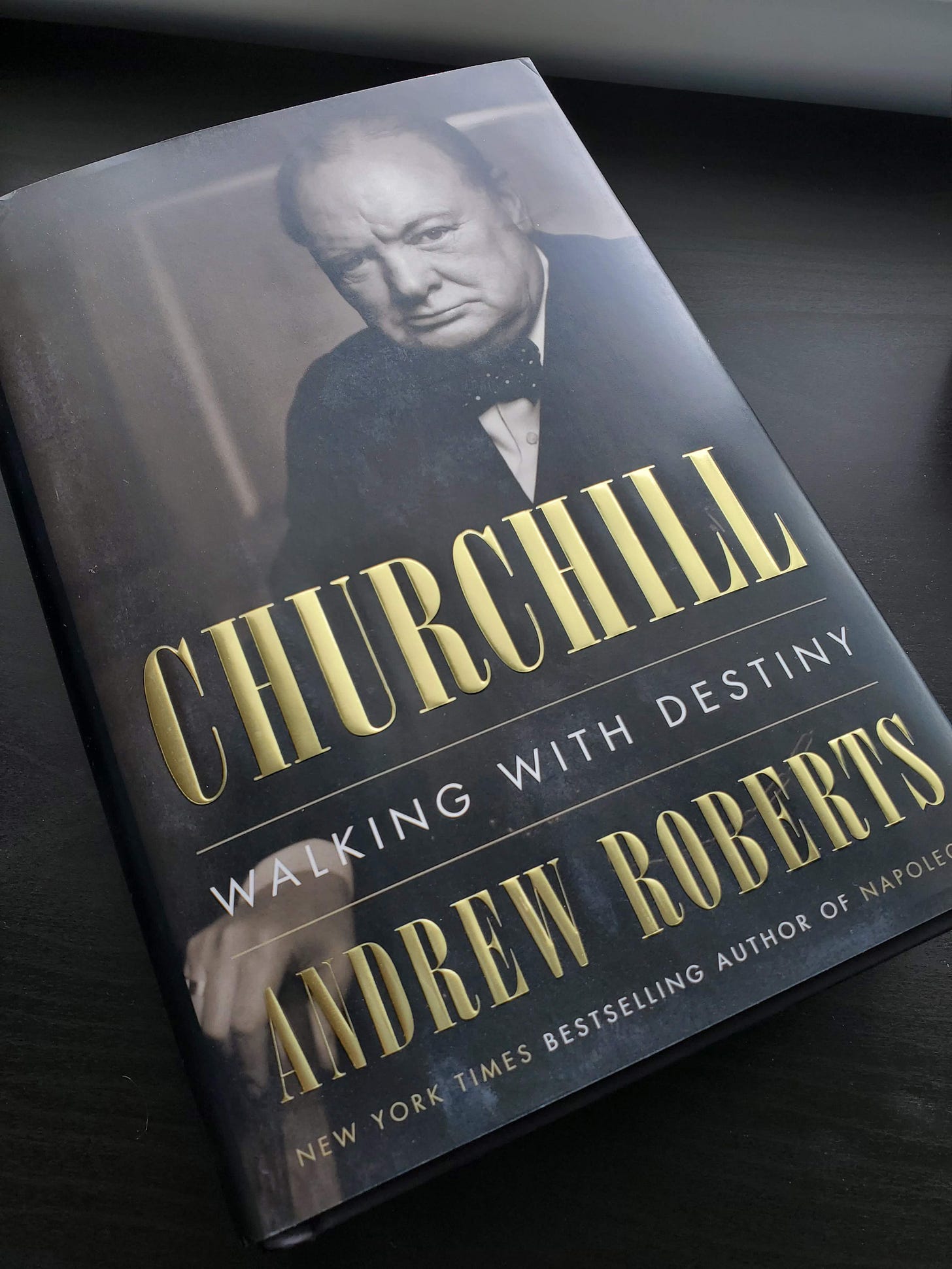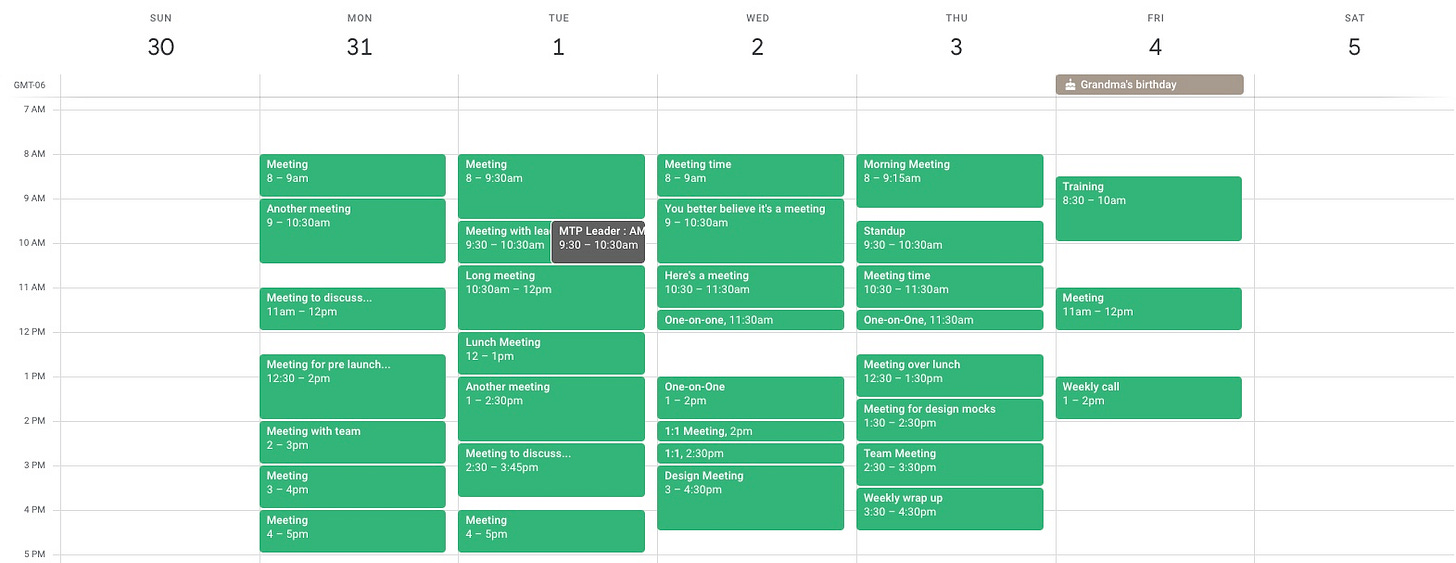The Importance of History
Learning From The Past So We Can Strategically Create the Future
I love history. My shelves (physical and digital) are stuffed with books on history. From more ancient history like The History of the Decline and Fall of the Roman Empire to more modern history like Creativity Inc. History is fascinating. It is filled with lessons.
We were driving to Yellowstone a few weeks ago, and the topic of Winston Churchill came up. As the kids were watching their movie, my wife and I talked about his under-appreciated role (at least among Americans) in winning the World War 2.
One thing (among many, which I’ll be discussing more at length in future posts) that has always struck me about Churchill was his tremendous foresight and strategic vision. He correctly saw the threat of Nazism well before others realized its true magnitude. He also saw the threat of Stalinism before it became apparent to others.
Shortly after the Japanese attacked Pearl Harbor, Churchill crossed the Atlantic via ship to meet with FDR. While he was crossing the ocean, he strategically mapped out the course of the war from that point forward, not only predicting what would happen on various fronts from the Pacific to the Mediterranean, but pointing to future inventions they would need in the course of the war to win, like landing craft for beaches. He wrote this all down in memoranda for his staff. Strategic. Vision.
In the book, Churchill: Walking With Destiny, Andrew Roberts sums it up like this:
Although he made some incorrect predictions in these memoranda - together they constitute a masterpiece of foresight and clear strategic thinking. In some of his predictions, he was only a month or two away from what actually took place. Churchill is correctly credited with showing prescience about Nazism in the 1930s and Stalinism in the 1940s, but he also deserves great credit for mapping the course of the Second World War with extraordinary accuracy while crossing the storm-tossed Atlantic in December 1941.

This type of vision doesn’t just happen. It is the product of a brilliant mind applied to a complex problem. Which is why it is so important to learn that lesson.
We face many complex challenges today. Some are extremely large on the scale of humanity. How do we not kill ourselves completely off in one way or another? How do we reconcile our past with our future?
Others are smaller scale, but may be equally important to you or your company. How do we grow our business or product? How do we increase our retention?
These aren’t problems we can solve by continuing on our normal day-to-day frantic pace. While we may feel productive going 100 miles per hour all the time, that’s not how we solve genuine problems if we never slow down.
Maybe crossing the Atlantic was exactly what Churchill needed to map out a strategy, though given his prolific writing and ability to focus, it probably wasn’t necessary. But for many of us, it would probably be a welcome voyage in order to pause and reflect. To organize our thoughts, to think deeply about the complex problems we face. But if given that opportunity, would we take it? Could we take advantage of it without becoming distracted?
It may be out of the question for now, but how many of our calendars look something like the below? Almost every hour filled with a meeting, and the small breaks that aren’t filled with meetings, we’re trying to squeeze in a meal or emails or actual work.

How could you possibly think strategically about your product or organization or team with no mental space? I know I can’t do it. And whenever my calendar starts looking like this, my work suffers immensely. Yet it seems to be the natural state these days. Almost the second law of meeting thermodynamics. Calendars never get less filled as time goes on without significant action (I sense another post coming on that topic).
One thing I’ve always strived to do is block out time immediately on my calendar for strategic thinking (see the yellow blocks below). The better you can do about keeping that time blocked, the better you’ll be. Because meetings will inevitably encroach. And if not meetings, then other demands. But you need your trans-Atlantic time each week to map out your ongoing strategy and to address the complex problems that your team and your product and your business are facing.

Clear things out now. The sooner the better. If you can take an entire day, that is even better. I’ve had teams and organizations that block out one day a week for “no meetings”. That’s a beautiful thing if you can make it work. Dedicate that time, like Churchill, to addressing the biggest challenges you’re facing, personally and professionally. This is critical for product managers and designers. But for everyone as well.
I’ll probably be taking a lot of lessons from history as we go. I hope you enjoy that as much as I do. In the meantime, here are some other links and things that I’ve found interesting lately.
Interesting Links:
The Destroyer of Worlds (podcast) - In keeping with our theme of history, one of my favorite podcasts is Hardcore History. I listened to this episode this past week on humankind’s handling of nuclear technology and how close we’ve been to the brink. It’s so fascinating and something we take for granted now.
The Ecommerce Surge (link) - Unsurprisingly, ecommerce has surged during the lockdown from Covid19. It has accelerated several years in the course of a few months.
Your Mission Justifies Why Ideas Are Prioritized (podcast) - Saying no is hard, but it is much easier when you have a clear vision and strategy, which is why those things are so important in good companies and good products.
What Is Product Management (link) - Taking on the perennial question, I dive into what makes product management and what are the core aspects to focus on. If you like product and design, this will be a great place for articles on that. Give it a follow.


